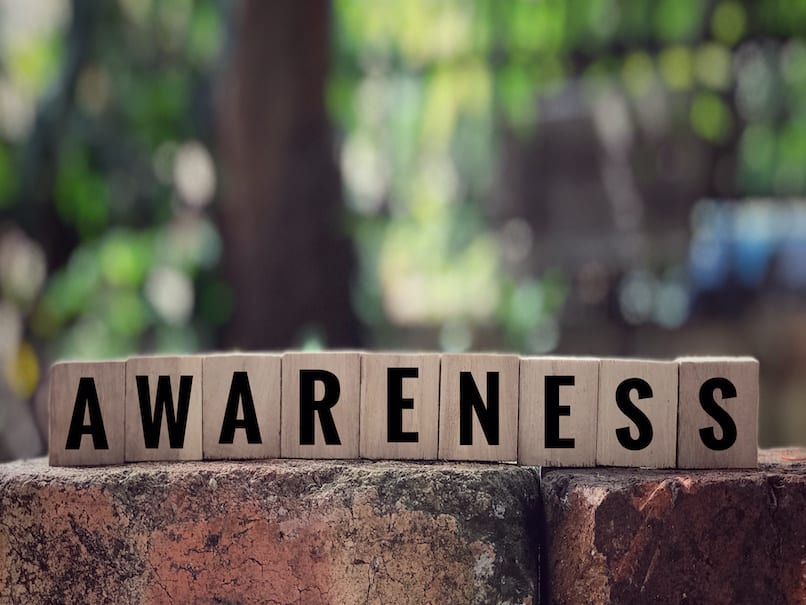The Importance of Understanding Co-Occurring Disorders

Addiction is a difficult enough disorder for a person to cope with by itself. However, addiction can occur alongside other psychological disorders and when it does, the effects of both are amplified. This condition is known as comorbidity, or co-occurring disorders. If an addict’s recovery plan does not take in to account their other disorder, it may even be doomed to failure. Unfortunately, co-occurring disorders is a conversation that is often neglected by professionals. Many rehab centers have no plan for it, and as a result are ill equipped to properly help patients suffering from it.
When a person is struggling with both addiction and a mental health diagnosis, they may feel like it is impossible for them to ever become sober. The two disorders work together, draining a person of their will and happiness to reinforce one another. This makes it more difficult, both mentally and physically for a person to agree to outside help and truly benefit from it.
Fortunately, suffering from two disorders at the same time does not mean that a person is destined to suffer. Treatment is still an option, and for that reason, there is always hope. The only difference is that this treatment must target not only their addiction, but their mental health diagnosis as well.
How Common are Co-Occurring Disorders?
Given how little co-occurring disorders are talked about, many people are led to believe that it is a rare condition. According to the National Institute on Drug Abuse, roughly 7.7. million Americans suffer from a co-occurring disorder. Furthermore, the effects of co-occurring disorders are not limited to the individual suffering from it, but also impact their friends and family.
What are the Signs of a Co-Occurring Disorder?
Unfortunately, spotting a co-occurring disorder is not always an easy task. Sometimes an individual who develops an addiction may have already been confirmed to have a disorder beforehand, making it easy. This is usually not the case however, and the signs to identify comorbidity are like those of a severe standalone addiction. These symptoms would include:
- Avoiding family and friends
- Engaging in risky behaviors
- Experiencing mood swings
- Losing interest in old hobbies
- Neglecting health and hygiene
- Losing control over drug usage
- Neglecting responsibilities
- Developing a tolerance or dependence to a substance
Since the signs are so similar between addiction and comorbidity, the mental health disorder is frequently overlooked when an individual undergoes recovery. For this reason, it is crucial to visit a medical professional who can diagnosis a co-occurring disorder before entering treatment, otherwise the process may not be as beneficial.
If a person attempts addiction treatment without also receiving treatment for their mental health disorder, there are two common outcomes that are valuable signs that a person is struggling with comorbidity.
The first is that their mental health symptoms will worsen even while they are receiving treatment. This occurs because their chosen substance was likely a coping mechanism for their disorder and without it, they lose their primary ability to manage their feelings. Most treatment programs do try to teach healthy coping mechanisms as a part of addiction recovery, but without being aware of the other disorder, there is a good chance the skills they are teaching may not apply to the individual’s actual needs. It is even possible that the new skills can make the mental health disorder feel more severe.
The alternative of this is that the patient will seem resistant to treatment. This happens for the same reason as the first, but rather than the mental health disorder growing worse, the addiction repeatedly returns or remains persistent. This happens due to the individual’s inability to cope with their symptoms in a healthy fashion, continually relying on drugs or alcohol to manage their feelings.
Which Disorders are Most Common?
It is possible for any mental health disorder to exist alongside an addiction, although some disorders are more common pairings than others. This is because people with certain mental health diagnoses have a greater tendency to misuse a substance while seeking relief from their condition. This turns the disorder into a catalyst for addiction, placing them at greater risk than someone who does not suffer from comorbidity. Additionally, it is also possible for a person to develop an addiction first, and then develop a mental health disorder as a result of their drug use.
In either case, the mental disorders that most frequently accompany addiction include:
- Depression
- Bipolar disorder
- Schizophrenia
- Social Anxiety
- Post-traumatic stress disorder
- Obsessive-compulsive disorder
When a person has any of these conditions, they are already at a greater risk for addiction. This will in turn amplify the effects, making both diagnoses a greater struggle.
Treatment
The process for treating co-occurring disorders is known as dual diagnosis treatment. During this process, both diagnoses have been identified and acknowledged, allowing the assigned care team to properly formulate treatment plans specifically tailored to fit the individual’s needs. Since the recovery process must be geared to address two different disorders, dual diagnosis treatment is typically more complex in nature, which unfortunately some rehab centers are not equipped to handle.
While undergoing dual diagnosis treatment, some processes are similar to those found in traditional drug and alcohol rehabilitation, while other stages of care are modified to address the patient’s comorbidity. While the patient will undergo detox to overcome their physical dependence to a substance, the medical staff must take extra precaution in determining proper protocols. For instance, some anti-anxiety or depression medications may have adverse effects when used in conjunction with specific detox medications. Thus, it is imperative that each patient be as honest and specific as possible when meeting with the medical staff at their chosen rehab facility. This will ensure that the patient receives the quality care they deserve while avoiding any potentially harmful outcomes. As the patient then transitions to residential care, their counselor will determine the best suited treatment plans to address both their addiction and mental health disorder, giving them the opportunity to learn healthy coping mechanisms and address potential triggers that could jeopardize long-term recovery.
By treating both disorders simultaneously, dual diagnosis treatment offers a patient the best possible chance to safely overcome their co-occurring disorder.
A treatment plan for dual diagnosis may include:
- Education & Awareness: Teaching the patient how both disorders may contribute to one another, and why it is important to treat both conditions simultaneously.
- Therapy: During residential treatment, a patient will participate in various evidence-based therapeutic approaches to treat both their addiction and mental health diagnosis. This can include individual counseling, group therapy, cognitive behavioral therapy, relapse prevention, life-skills training, and holistic treatment.
- Family Therapy: Family therapy will give the patient’s loved one’s an opportunity to get involved in the treatment process, teaching them how certain family dynamics and relationships can either help or hinder long-term recovery. In the latter, family counselors will offer the loved one(s) various tools to create a more supportive environment that is conducive in the recovery journey.
- Psychiatric Intervention/Medication: When appropriate, the clinical team will either provide or refer the patient to psychiatric counseling. In some instances, that psychiatric professional may determine that medication is needed to reduce the symptoms caused by the patient’s mental health disorder. Of course, it is imperative that any prescribed medication does not negatively impact or contribute to ongoing substance abuse.
Coming to the realization that one needs help for an alcohol or drug problem is never easy for anyone. But, when someone struggles with both addiction and mental health, asking for help can seem nearly impossible. Thankfully, hope exists for those individuals, with specialized programs that treat co-occurring disorders. With comprehensive treatment strategies and a well-rounded team of professionals trained to treat such disorders, a patient is given the opportunity to thrive in recovery and maximize their fullest potential.
Getting Help for a Co-Occurring Disorder
If you or a loved one is struggling with both addiction and a mental health diagnosis, we are here to help. From the moment you call Brookdale Premier Addiction Recovery, your care, well-being, and experience throughout the treatment process is our number one priority. While it may feel impossible now, there is always hope for a life…recovered, and it begins by taking the first step and giving us a call.
To learn more about Brookdale, please call our trusted Admissions Specialists at (855) 575-1292.

